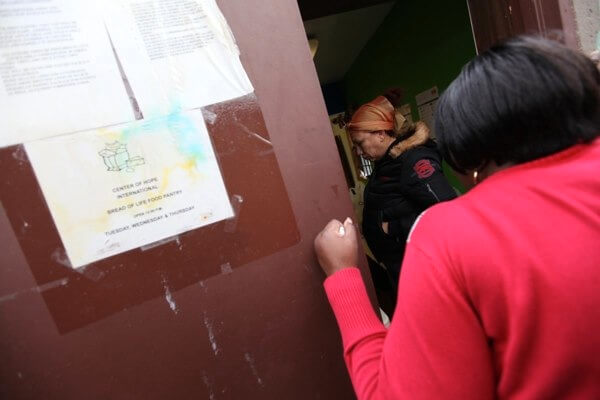By Gina Martinez
One in 12 adults in Queens live in households that cannot afford enough food, according to Hunger Free Hunger America, whose chief executive officer called the findings “shameful.”
The non-profit’s new report found that in the years 2014 to 2016, 234,023 adults in Queens lived in food-insecure homes. These numbers were slightly lower than the numbers from the previous year following the increase in minimum wage in New York City.
Hunger Free said that while hunger throughout New York City and the state dropped significantly over the last three years due to rising wages, the number of city and state residents unable to afford an adequate supply of food is still greater than a decade ago, before the start of the 2008 recession.
Citywide, the number of New Yorkers struggling with hunger dropped by 15 percent over the past three years, but still remains 15 percent higher than a decade ago. According to the report, from 2014 to 2016, 1.2 million New Yorkers, or one in seven of the population, lived in food-insecure homes, compared to 1.4 million from 2011 to 2013 and 1 million from 2004 to 2006.
The report also revealed that in Queens 63,798, or 10.3 percent of the children in the borough, lived in food-insecure homes from 2014 to 2016. The report said one out of every 11 seniors in Queen, or 8.8 percent, lacked enough food and that 34.6 percent of the city’s pantries and kitchens indicated they were not distributing enough to meet demand. As part of this shortage, 38.9 percent indicated they had to turn people away, reduce the amount of food, or limit their hours of operation.
Joel Berg, CEO of Hunger Free America, said that while unemployment decreased and wages rose during the last few years of the Obama administration, it is shameful that New York City has higher levels of hunger than before the Great Recession. According to Berg, President Donald Trump has proposed slashing the Supplemental Nutrition Assistance Program, formerly called the Food Stamp Program by $192 billion in his proposed budget. Congress has also proposed major cuts to the program, which 93 percent of the people who run food pantries and soup kitchens in the city said would cause their clients to struggle even more.
“We still face a nation, state, and local epidemic of the ‘working hungry.’” he said. “Nationwide, the abysmally low minimum wage clearly is a chief cause of hunger. Yet just at a time when the nation needs even more jobs, even higher wages, and even more robust anti-hunger safety net programs, Republicans in Washington are scheming to cut the safety net and eviscerate health care – which would clearly make hunger soar – just to fund even more tax cuts for the mega-wealthy.”
City Councilman Barry Grodenchik (D-Oakland Gardens) said he applauded Hunger Free for shining the light on the city’s persistent hunger problem.
“Far too many New Yorkers lack access to adequate quality food,” he said “Choosing between paying bills and purchasing nutritious food is a constant struggle for so many of our neighbors. No one should ever go hungry in our great city.”
Reach Gina Martinez by e-mail at gmart



































